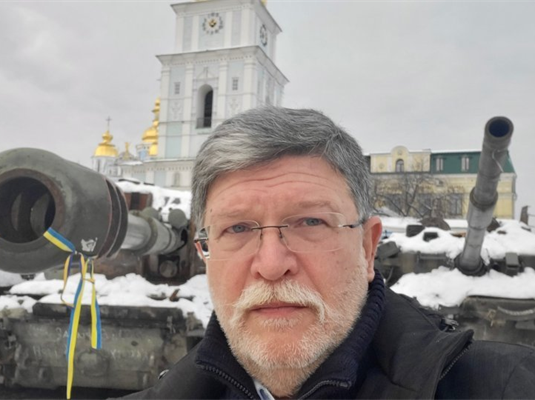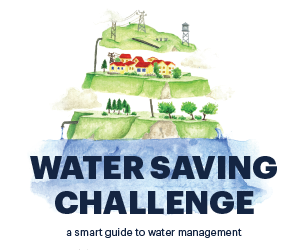"That would be an expected upgrade of our policy of support to Ukraine. I think that this is completely justified and there is no reason for Croatia to abstain from it", says Picula.
According to a poll conducted by Promocija Plus for RTL, 58.2 percent of respondents oppose the training of Ukrainian soldiers in Croatia, while 29.4 percent mostly or completely support such a proposal.
The S&D MEP believes that it is "indicative that Croatian citizens were surveyed on almost the same topic a month ago and they were inclined to support Ukraine in this way", which indicates that the Government is "obviously making a mistake in its communication model".
Picula believes that one type of resistance of the Croatian public to the project stems from the perception of the Government itself, "that is, the officials who proposed Croatian participation in the program", obviously alluding to the Prime Minister and the Ministers of Foreign Affairs and Defense.
The training of Ukrainian soldiers has turned into a kind of medium of dissatisfaction with the government's work in other areas as well, Picula thinks. This "has grown into a point of conflict that reflects many other elements of disagreement with the Government's policy", he said.
Milanović and Plenković are equally to blame
On November 15, the Council of the EU adopted the decision to launch the EU Military Assistance Mission in support of Ukraine (EUMAM - European Union Military Assistance Mission in support of Ukraine), as part of which it is planned to train 15 thousand Ukrainian soldiers in EU countries.
The government wants Croatia to participate in that program, which is opposed by Croatian President Zoran Milanović, who argues that according to the Croatian Constitution, only members of the armed forces of allied countries can operate within the borders of Croatia, which Ukraine is not.
In contrast, the government claims that Ukraine, as a member of NATO's Partnership for Peace program, is an ally of Croatia.
Picula points out that "for a long time, Croatia has not been able to speak with one voice on foreign policy issues of crucial importance", and believes that both sides are responsible for this.
"There were examples of earlier practices during the time of other presidents and governments when this cooperation, regardless of political differences, went much easier. At this moment, the relations between the government and the president are clearly at such a low level that a project that should be almost self-evident by logic becomes questionable," says Picula. He notes that in addition to Croatia, 17 other EU members will participate in the mentioned program.
According to Picula, this indicates increasing cooperation and coherence in military matters at the EU level, and that the member states "can now overcome some internal differences and agree on such a sensitive mission".
"It is not good that Croatia cannot overcome its own political differences in order to join such an initiative," he adds.
Not so much a constitutional as a political issue
Croatian participation in EUMAM, due to disagreements between Banski dvori and Pantovčak, will be voted on by the Croatian Parliament, which can approve participation with a two-thirds majority.
After the president and the opposition opposed the government's proposal that Croatia train Ukrainian soldiers as part of the EU mission, the Green-Left Bloc and the SDP in the Croatian Parliament proposed at the end of last week that Croatia should train them for demining, securing, and protecting liberated areas and places struck by war crimes and strengthening in the field of cyber security.
Picula sees in this "a proposal that tries to find a bridge between two interpretations of the situation" and "an attempt to mitigate differences and still ensure Croatia's participation in the EUMAM mission".
He emphasizes that this is a problem that has a constitutional-legal and security dimension, but it is primarily a political issue.
"As soon as we are talking about a political issue that is presented in a bad way, it opens up space for political confrontations that are not directly related to that topic," he adds.
Ukraine needs continued military aid
Picula visited Kyiv on Friday as a member of the joint delegation of the Committee on Foreign Policy (AFET) and the Subcommittee on Security and Defense (SEDE) of the European Parliament (EP).
Reznikov informed the delegation about the situation on the battlefield and told them that Ukraine needs anti-missile systems the most, as well as armored mechanized vehicles, tanks, drones and equipment for electronic warfare, Picula says.
"The motivational moment is decidedly on the Ukrainian side, but in order for this motivation to materialize through successes on the battlefield, further support from the West is also needed," the Croatian MEP believes.
Other high-ranking Ukrainian officials informed the delegation about the damage Russia has caused to the Ukrainian energy infrastructure, the living conditions of the residents of Kiev who often face a lack of electricity and water, the prosecution of war crimes, the degree of destruction of settlements and others.
"It was really pleasant to hear from our interlocutors how much the support of Brussels is appreciated, especially from the European Parliament, which is among the first to support Ukraine's candidate status for EU membership," Picula points out.
"The European Parliament advocates not only the strengthening of support for Ukraine, but also the establishment of an efficient mechanism to control the implementation of sanctions imposed on the Russian aggressor," Picula added.


